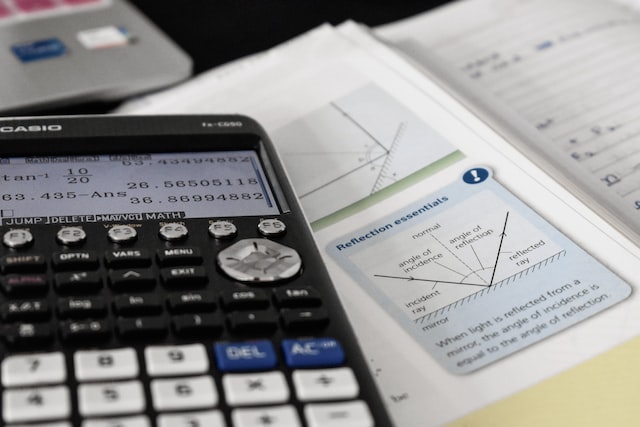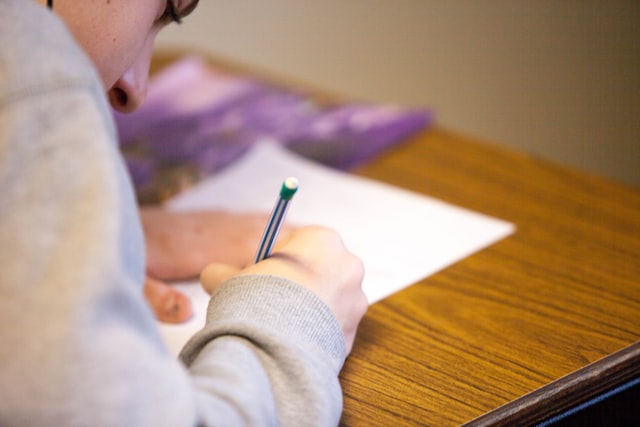13 Tips to Relax Before an Exam
Exams are a stressful and nerve-wracking experience for many students. The pressure to perform well can be overwhelming, and it can be challenging to stay calm and focused during the lead-up to the exam.
However, taking the time to relax and prepare mentally can make a significant difference in your exam performance. In this blog post, we've put together 13 tips to help you relax before an exam.

1. Get Enough Sleep:
Getting a good night's sleep is crucial before an exam.
Your brain needs time to process all the information you've been studying, and sleep helps with memory consolidation. It's essential to avoid cramming all night, as this can make you more tired and less alert during the exam.
Instead, aim to get a full eight hours of sleep.
2. Exercise:
Exercise can help to relieve stress and improve your mood.
It increases the production of endorphins, which are chemicals in the brain that make you feel good.
Go for a run, swim or do some yoga to get your body moving and reduce stress.
3. Take a Bath
Having a warm bath can help to ease tension in your muscles and promote relaxation.
Add some essential oils or Epsom salt to enhance the calming effect. This can be particularly useful if you're feeling physically tense or stressed.

4. Listen to Soothing Music:
Listening to soothing music can help to calm your nerves and reduce anxiety.
Choose music that you find calming and relaxing, and create a playlist that you can listen to before the exam.
5. Meditate:
Meditation can help to reduce stress and anxiety, and improve focus and concentration.
Spend a few minutes each day meditating to help you relax. Find a quiet space and focus on your breath, or use a guided meditation app to help you get started.
6. Write It Down:
Writing down your thoughts and feelings can help you to clear your mind and reduce stress.
Take a few minutes to jot down your worries and concerns before the exam. This can help you to get them out of your head and onto paper, so you can focus on the task at hand.

7. Take a Walk:
Taking a brisk walk can help to clear your mind and reduce stress.
Spending time in nature can also be particularly calming, so try to find a park or green space to walk in if possible.
8. Practice Deep Breathing:
Deep breathing can help to calm your nerves and reduce anxiety.
Take a few slow, deep breaths before the exam to help you relax. Focus on your breath, and try to inhale for four seconds, hold for seven, and exhale for eight.
9. Visualize Success:
Visualize yourself succeeding in the exam. This can help to boost your confidence and reduce anxiety.
Take a few minutes to imagine yourself answering questions confidently and achieving a good grade.
10. Drink Herbal Tea:
Herbal tea can help to promote relaxation and reduce stress.
Chamomile tea, in particular, is known for its calming properties. Drink a cup of tea before the exam to help you relax.

11. Laugh:
Laughter can help to reduce stress and improve your mood.
Watch a funny movie or spend time with friends to help you relax before the exam.
12. Eat a Healthy Meal:
Eating a healthy meal before the exam can help to provide you with energy and reduce stress.
Avoid heavy, greasy foods that can make you feel sluggish. Instead, opt for foods that are high in protein, such as eggs or lean meat.

13. Take Breaks:
Taking breaks during your study sessions can help to reduce stress and improve focus.
Take a few minutes to stretch or go for a quick walk to help you relax. Avoid studying for long periods without taking a break, as this can lead to burnout and increased stress levels.
Conclusion:
Taking the time to relax before an exam is essential. Incorporating these tips into your routine can help to reduce stress, improve your mood, and ultimately improve your exam performance.
Remember to prioritize your well-being during this stressful time, and good luck with your exams!




